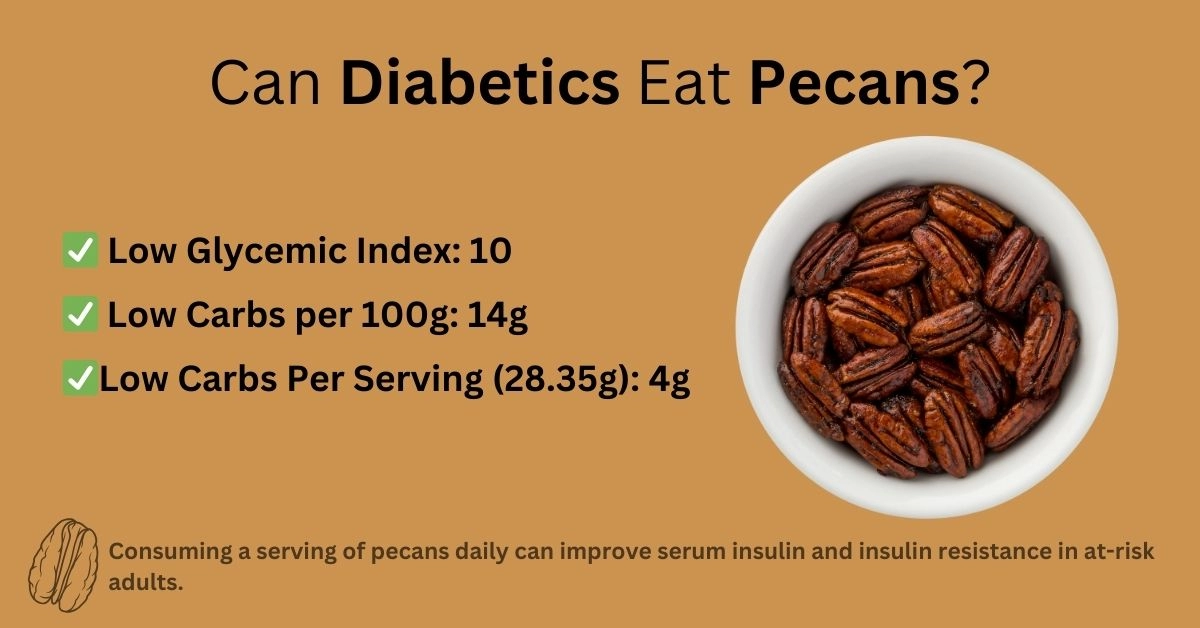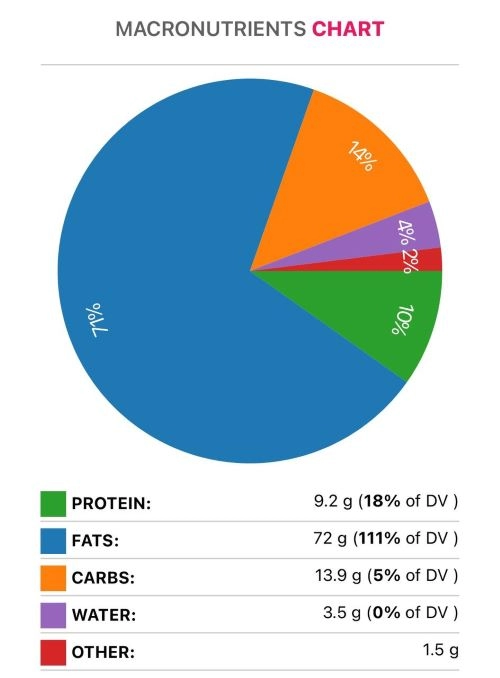Pecan Nuts and Diabetes - Are They Good For Diabetics

Introduction
We've all heard that nuts are healthy snacks with numerous nutritional benefits. According to the American Diabetes Association, nuts are diabetes superfoods, especially those with high fiber content and a low glycemic index.
We'll talk about how pecan nuts can help with blood sugar levels and diabetes.
Diabetes
The glycemic index of pecan is 10; it is considered low GI food. To find glycemic index values of 350+ pages, visit the Glycemic index chart page.
According to research, consuming a serving of pecans per day can improve serum insulin, insulin resistance, and beta-cell function in at-risk adults (1)(2)(3).
In one small study of 26 adults who were overweight or obese, eating a pecan-rich diet for four weeks improved the body's ability to use insulin effectively. Furthermore, this diet improved the function of beta cells in the pancreas, which produce insulin (4).
One study published in Nutrients found that eating 1.5 ounces of pecans per day – a small handful – may protect adults at risk of developing cardiovascular disease and type 2 diabetes (4).
Another study showed that patients with type 2 diabetes who ate about five servings of pecans per week had a 17% lower risk of cardiovascular disease. Besides, people with type 2 diabetes who consumed nuts regularly had a 34% lower risk of death from cardiovascular disease, a 20% lower risk of coronary heart disease, and a 31% lower risk of premature death overall.
Eating pecans also gives you a satiety feeling, so you won't eat as much to satisfy your cravings. Pecans are also a good substitute for sugary snacks that would otherwise cause blood sugar spikes.
One study published in Nutrients found that eating 1.5 ounces of pecans per day – a small handful – may protect adults at risk of developing cardiovascular disease and type 2 diabetes (5).
Important notes: people with diabetes should avoid eating salted pecans because the sodium in the foods will cause their blood sugar to spike (6).

Gestational Diabetes
Gestational diabetes is a type of diabetes that develops in pregnant women who have never had diabetes. Elevated blood sugar levels during pregnancy impact the mother's health, but they may also increase the baby's risk of developing diabetes.
According to research, moderate nut consumption may benefit kidney health in women who have previously had gestational diabetes mellitus.
One study discovered a link between total nut consumption and urinary albumin-to-creatinine ratio. Women with no monthly or daily intake had adjusted UACR values of 86%, 24%, and 117% higher than women with weekly intake. According to the study, women with a history of gestational diabetes at high risk of kidney disease may benefit from moderate nut consumption (6).
